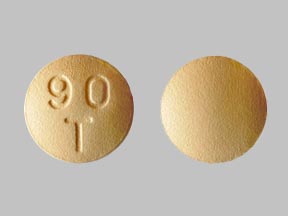Brilinta Disease Interactions
There are 5 disease interactions with Brilinta (ticagrelor).
Ticagrelor (applies to Brilinta) bleeding
Major Potential Hazard, High plausibility. Applicable conditions: Peptic Ulcer
Ticagrelor is contraindicated in patients with active pathological bleeding, such as peptic ulcer or intracranial hemorrhage.
References
- "Product Information. Brilinta (ticagrelor)." Astra-Zeneca Pharmaceuticals (2011):
Ticagrelor (applies to Brilinta) liver dysfunction
Major Potential Hazard, Moderate plausibility. Applicable conditions: Liver Disease
Ticagrelor is metabolized by the liver. The use of ticagrelor should be avoided in patients with severe hepatic impairment. Care should be taken in patients with moderate hepatic impairment and it is recommended to consider the risks and benefits of treatment due to the probable increase in exposure to ticagrelor. No dosage adjustment is needed in patients with mild hepatic impairment.
References
- "Product Information. Brilinta (ticagrelor)." Astra-Zeneca Pharmaceuticals (2011):
Ticagrelor (applies to Brilinta) bradyarrhythmias
Moderate Potential Hazard, Moderate plausibility. Applicable conditions: Sinus Node Dysfunction
Ticagrelor can cause ventricular pauses. Bradyarrhythmias including AV block have been reported in the postmarketing setting. It is recommended to use care if prescribing this agent to patients with a history of sick sinus syndrome, 2nd or 3rd degree AV block or bradycardia-related syncope not protected by a pacemaker as they may be at increased risk of developing bradyarrhythmias.
References
- "Product Information. Brilinta (ticagrelor)." Astra-Zeneca Pharmaceuticals (2011):
Ticagrelor (applies to Brilinta) dyspnea
Moderate Potential Hazard, Moderate plausibility. Applicable conditions: Pulmonary Impairment
Dyspnea has been reported with the use of ticagrelor. Care should be taken when prescribing this drug to patients that experienced dyspnea. If a patient develops new, prolonged, or worsened dyspnea that is determined to be related to the drug, no specific treatment is required; continue treatment and monitoring without interruption, if possible. In the case of intolerable dyspnea requiring discontinuation, consider prescribing another antiplatelet agent.
References
- "Product Information. Brilinta (ticagrelor)." Astra-Zeneca Pharmaceuticals (2011):
Ticagrelor (applies to Brilinta) renal impairment
Moderate Potential Hazard, Moderate plausibility. Applicable conditions: hemodialysis
No dosage adjustment is needed in patients with renal impairment. Patients receiving dialysis have not been studied, close monitoring is recommended.
References
- "Product Information. Brilinta (ticagrelor)." Astra-Zeneca Pharmaceuticals (2011):
Brilinta drug interactions
There are 474 drug interactions with Brilinta (ticagrelor).
More about Brilinta (ticagrelor)
- Brilinta consumer information
- Check interactions
- Compare alternatives
- Pricing & coupons
- Reviews (98)
- Drug images
- Side effects
- Dosage information
- Patient tips
- During pregnancy
- Generic availability
- Support group
- FDA approval history
- Drug class: platelet aggregation inhibitors
- Breastfeeding
- En español
Related treatment guides
Drug Interaction Classification
| Highly clinically significant. Avoid combinations; the risk of the interaction outweighs the benefit. | |
| Moderately clinically significant. Usually avoid combinations; use it only under special circumstances. | |
| Minimally clinically significant. Minimize risk; assess risk and consider an alternative drug, take steps to circumvent the interaction risk and/or institute a monitoring plan. | |
| No interaction information available. |
Further information
Always consult your healthcare provider to ensure the information displayed on this page applies to your personal circumstances.


